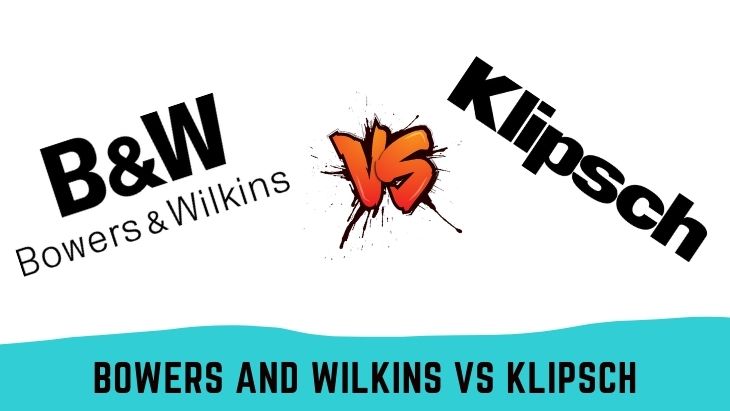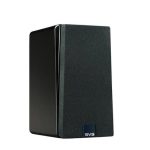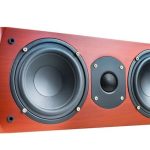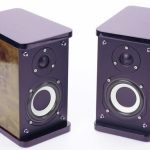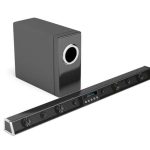There are several manufacturers who specialize in designing and manufacturing audio devices. Bowers and Wilkins and Klipsch are some of the most renowned audio device manufacturers. They specialize in manufacturing a wide range of sound systems including headphones, bookshelf speakers, floor standing speakers, soundbars, and subwoofers among others.
Essentially, Klipsch designs sound systems that offer a cinema-like listening experience. Their audio devices feature modern technology. Besides, they feature a unique aesthetic appeal to complement the design of a living room. On the other hand, Bowers and Wilkins (B&W) designs sound systems that deliver smooth and reliable sound. However, most of their speakers require a lot of power to drive them.
In this guide, we’ll discuss Bowers and Wilkins Vs Klipsch in detail. We’ll compare several aspects including their quality of construction, design, performance, and power requirements among other variables. Read on to know the better brand for your listening needs.
Quick Comparison
| Comparison Variable | Comparison Variable | Klipsch |
| Power Requirement | More power-hungry and needs powerful amplifiers | Less power-hungry and works with small amplifiers |
| Bass | Full bass response | Loud bass |
| Sound Output | Smooth | Bright |
| Best Movie Applications | Romance, comedy, and drama | Action and thriller |
| Best Music Applications | Soft music such as soul, jazz, and blues | Harsh music genres such as rock |
A Review of Bowers and Wilkins
Sound Quality
Most B&W speakers feature a ported enclosure design. That means they are not ideal for placement close to the rear or sidewall. If you place a ported speaker too close to the wall, they’ll sound muffled, especially if you’re setting them up in a small room. However, placing them close to the wall in a larger room may not be problematic.
If you dislike the harsh sound of horn speakers, then B&W speakers are your best bet. B&W speakers sound smoother than Klipsch. However, B&W speakers are not as clear as Klipsch speakers. Thus, B&W speakers produce less natural sound.
Bass Output
Generally, most B&W speakers offer great bass output. Their bass output is generally deep. Some of their speakers come with a dedicated bass reflex port for enhanced bass performance. Also, B&W manufactures great subwoofers for deep bass.
Frequency Response
Bowers and Wilkins speakers offer great frequency response. High frequencies, midrange, and low frequencies are generally great. Overall, they deliver well-balanced full-range sound.
Power Requirements
Most B&W speakers require a lot of power from an amplifier. Some have a very low impedance rating that makes them demand a lot of power. Consequently, you can’t use them with low-powered amplifiers. Thus, you need to invest in a very powerful amplifier to power them. Most powerful amplifiers are often more expensive than low-powered amps.
Applications
When comparing Bowers and Wilkins vs Klipsch, it’s worth noting that the smooth nature of B&W speakers makes them ideal for soft movies and music genres. Such genres don’t have numerous sound effects. They include music genres such as RnB, soul, and jazz. Also, they’re great for movie genres such as romance, comedy, and drama.
Quality of Construction
Overall, when comparing Klipsch vs Bowers and Wilkins, it’s clear that B&W has better tweeters. Also, its midrange drivers are great. Also, the overall build quality of B&W is better than Klipsch. However, B&W speakers don’t have a very modern design.
A Review of Klipsch
Sound Quality
Klipsch speakers tend to be brighter than B&W speakers. Their brightness is due to their horn drivers. If you like harsh and bright sound, Klipsch speakers would be your best bet. Regardless, the horn drivers make their sound output feel more natural. Thus, music feels like a live performance with Klipsch speakers. However, they easily unmask any flaws in a music recording.
Bass Output
The bass response from Klipsch speakers is quite powerful. In fact, some of its speakers come with bass drivers that make it less important to add a dedicated subwoofer. Regardless, Klipsch also manufactures several subwoofers.
Frequency Response
Klipsch speakers perform best on high frequencies. They’re generally underperforming in midrange.
Power Requirements
Klipsch speakers are known for their power efficiency. You can get a lot of volume from Klipsch speakers when using low-powered amps. You don’t need a very expensive amplifier to get loud sound from Klipsch speakers.
Applications
When comparing Klipsch vs B&W, Klipsch speakers are harsher. Thus, they’re more ideal for harsher music genres like rock and metal. Also, they’re ideal for movies with intensive sound effects such as action, science fiction, horror, and thriller.
Quality of Construction
Klipsch speakers vary in the quality of construction. Its less expensive speaker models feature a less desirable build quality whereas their more expensive speakers feature great build quality. Regardless, they all feature a more modern design than B&W speakers.
Final Thoughts- Which is better between Klipsch Vs Bowers and Wilkins?
Both Klipsch and B&W have their hits and misses. Thus, each brand has an area where it beats the other. For instance, if you prefer brighter sound output, Klipsch speakers are better for you. Also, if you have a weak amplifier, Klipsch speakers are your best bet.
On the contrary, if you prefer smoother sound output, B&W speakers are more ideal for you. Also, if you have a powerful amplifier, B&W speakers are a better choice than Klipsch speakers. With these details in mind, you’ll find it easier to choose between Bowers and Wilkins vs Klipsch.
Michael Evanchuk is a San Francisco-based sound engineer with 20 years’ experience installing, troubleshooting, and repairing commercial, automotive, and household sound equipment. Evanchuk owns an auto stereo center, where he offers highly competitive car audio installation and repair services. He has written dozens of articles on different sound engineering topics, all of which have been published in leading journals, blogs, and websites.

